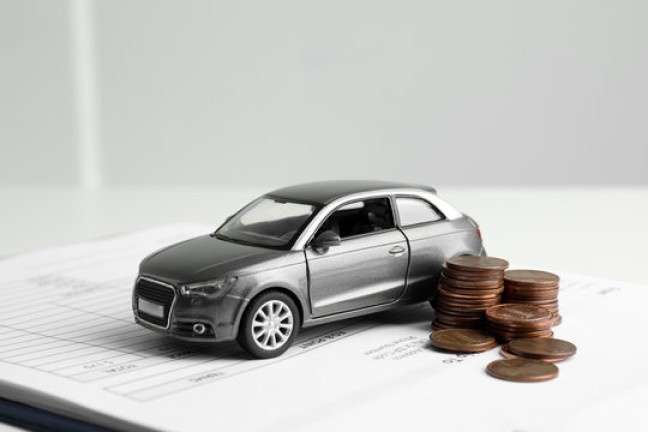When I first considered financing a car, I quickly found myself caught up in a sea of options, terms, and complex language. The idea of paying for a car in manageable monthly installments made a lot of sense to me, but I needed to dig deeper into what that really meant. In this article, I will explore the ins and outs of car finance, specifically focusing on what it means to have a £150 per month car loan. I will break down everything you need to know, including examples, comparisons, and a practical approach to understanding what you can expect with a monthly car finance payment of £150.
Table of Contents
What is Car Finance?
Car finance is a way for individuals to spread the cost of buying a car over time. Instead of paying for the car upfront, you commit to making regular monthly payments, typically over a period ranging from 1 to 5 years. There are different types of car finance options available, including Personal Contract Purchase (PCP), Hire Purchase (HP), and Personal Loans. In this article, I will primarily focus on how these types of finance options could relate to a £150 per month payment.
Types of Car Finance Explained
Before diving into the details of how £150 per month works in car finance, it’s important to understand the different types of car finance. I’ll take you through the three main options:
1. Personal Contract Purchase (PCP)
In a PCP agreement, I would pay a deposit upfront and then make monthly payments over a set period. At the end of the agreement, I have the option to return the car, buy it outright for a lump sum (known as the balloon payment), or refinance the balloon payment. This option offers lower monthly payments compared to other options, making it appealing for those with a £150 per month budget.
2. Hire Purchase (HP)
With HP, I would pay an initial deposit and then make fixed monthly payments over a set term. The difference with PCP is that there is no large balloon payment at the end. Once the term is complete, I own the car outright. HP typically results in higher monthly payments than PCP, but it is simpler and more straightforward for those looking for car ownership.
3. Personal Loans
Personal loans are another option. In this case, I borrow money from a lender and use it to buy the car outright. I would then repay the loan in monthly installments. The interest rates on personal loans can vary, and unlike PCP or HP, the car is fully owned by me from the moment I buy it.
What Can I Get with £150 Per Month?
Now, let’s look at how a £150 per month car finance deal stacks up. In general, £150 per month may be suitable for financing a used car, as new cars tend to have higher monthly payments due to their higher value. However, the exact terms and conditions depend on various factors such as:
- Deposit Amount: The size of the deposit I can afford will significantly impact the monthly payments. If I can put down a larger deposit, the monthly payments could be lower, making it easier to afford the car of my choice.
- Length of the Agreement: The duration of the loan is crucial. A longer loan term generally means lower monthly payments but more interest paid in total. A shorter loan term means higher payments but less interest overall.
- Interest Rates: The interest rate on the car finance deal is another key factor. A lower rate means I can borrow more for my £150 per month, while a higher rate will reduce my borrowing power.
To make things clearer, let me provide a simple example.
Example 1: Used Car Financing with PCP
Let’s say I’m interested in financing a used car worth £6,000. I put down a deposit of £1,000, leaving £5,000 to be financed. Based on a 4-year (48 months) term with a fixed interest rate of 7%, here’s how the numbers break down:
| Item | Value |
|---|---|
| Car Price | £6,000 |
| Deposit | £1,000 |
| Amount to Finance | £5,000 |
| Term (Months) | 48 |
| Interest Rate (Fixed) | 7% |
| Monthly Payment | £150.89 |
As we can see from the table, my monthly payment for this deal would be approximately £150.89. This is a realistic example of what a car loan at £150 per month could look like for a used car, factoring in the deposit, loan term, and interest rate.
Example 2: Used Car Financing with HP
Let’s consider a similar scenario, but with a Hire Purchase deal. This time, I’ll finance the same £6,000 car, but instead of a PCP, I’ll use HP. The deposit is again £1,000, and I’ll finance £5,000 over 3 years (36 months) at an interest rate of 6%.
| Item | Value |
|---|---|
| Car Price | £6,000 |
| Deposit | £1,000 |
| Amount to Finance | £5,000 |
| Term (Months) | 36 |
| Interest Rate (Fixed) | 6% |
| Monthly Payment | £149.44 |
As you can see, the monthly payment is slightly lower for HP than for PCP in this example. This is because the loan term is shorter, meaning I’ll pay off the car more quickly, but without a balloon payment.
What Else Should I Consider?
While £150 per month may seem affordable, it’s important to also consider other costs associated with owning a car, which can add up quickly. Some of these include:
- Insurance: Car insurance is essential and can vary greatly depending on the type of car and the driver’s history. I would need to factor this into my budget.
- Fuel Costs: Depending on how much I drive, fuel can be a significant ongoing cost.
- Maintenance and Repairs: Especially with used cars, there may be unexpected repair costs. Regular maintenance such as oil changes, brake checks, and tire replacements should also be considered.
- Tax and MOT: Road tax and MOT (for cars over 3 years old) are other costs that must be factored into the budget.
Pros and Cons of £150 per Month Car Finance
Pros:
- Affordable Payments: £150 per month is an accessible payment amount for many people, making car finance an attractive option.
- Flexibility: With PCP, I have the option to return the car or buy it outright at the end of the contract, providing some flexibility.
- Easier to Get a Car: Car finance can make owning a car more achievable, especially when I don’t have the funds to buy a car outright.
Cons:
- Higher Total Cost: Over time, I may end up paying more for the car than its initial value due to interest charges.
- Depreciation: The car will depreciate over time, and I could owe more than the car’s worth if I don’t choose the right finance option.
- Commitment: Car finance is a long-term commitment, and I will be required to make monthly payments for the duration of the term.
Conclusion
For many people, £150 per month is a manageable and attractive way to finance a car. It allows me to drive a car that I may not have been able to afford upfront, with the flexibility to choose the best finance option for my needs. However, it’s essential to fully understand all the associated costs and long-term commitment that comes with car finance. By comparing options like PCP, HP, and personal loans, I can make a more informed decision that suits my financial situation.
If you are considering car finance at £150 per month, I recommend carefully reviewing the terms of each agreement and factoring in all the associated costs before making a commitment. The right car finance deal will help ensure that I enjoy my car without the burden of financial stress.





